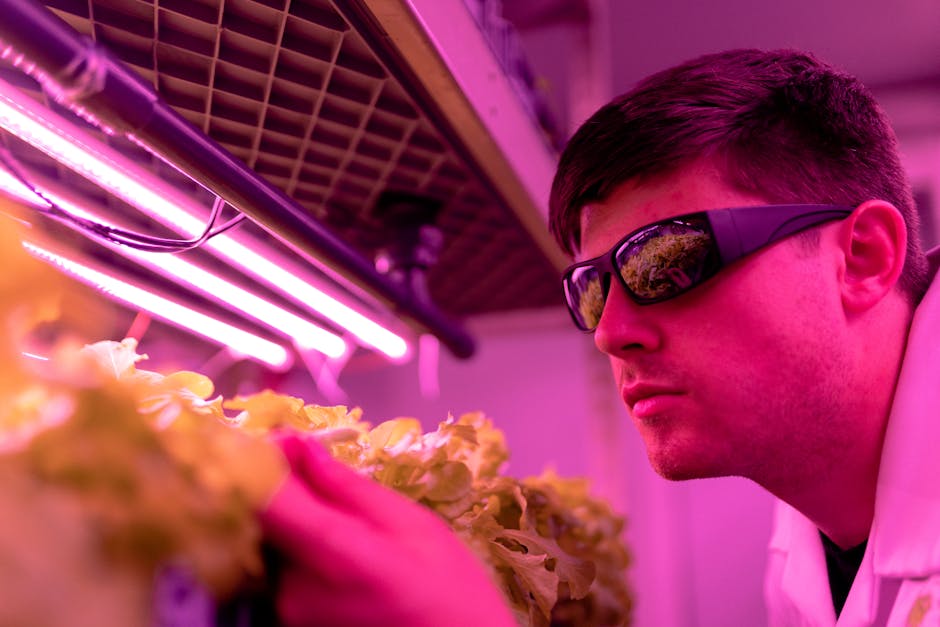The agricultural landscape is rapidly evolving, driven by the relentless march of technological advancement. This transformative period presents both opportunities and challenges, but the overarching question remains: will technological innovations enhance crop yields in the future? A definitive answer is complex, requiring an examination of various technological facets impacting farming practices.
Precision agriculture, a cornerstone of this advancement, holds significant potential. Sophisticated sensors and data analytics enable farmers to monitor soil conditions, plant health, and weather patterns with unparalleled accuracy. This data-driven approach allows for targeted application of resources, such as water and fertilizers, optimizing their usage and minimizing waste. Remote sensing technologies, utilizing satellites and drones, provide aerial imagery and spectral data. This wealth of information enables farmers to identify areas with nutrient deficiencies, pest infestations, or water stress, enabling proactive interventions. Furthermore, variable rate technology allows for the customized application of inputs based on these detailed assessments, maximising efficiency and minimizing environmental impact.
Beyond the realm of precision, genetic engineering and biotechnology have become integral to agricultural progress. Modern techniques like CRISPR-Cas9 are revolutionizing crop development, allowing for the targeted modification of plant genomes. This could lead to the creation of crops with enhanced resilience to pests, diseases, and environmental stresses like drought or salinity. Higher yields, improved nutritional value, and reduced reliance on chemical interventions are potential outcomes. However, the ethical and societal implications of these advancements require careful consideration and robust regulatory frameworks.
Another significant development influencing crop yield potential is automation. Automated harvesting equipment, guided by sophisticated navigation systems and image recognition, can streamline the process, improving efficiency and reducing labor costs. Furthermore, robots and drones are being employed for tasks like planting, weeding, and spraying, further enhancing the productivity of farms. This mechanization can greatly improve yield, especially in regions with labor shortages or where human intervention is challenging.
However, technology adoption is not without its hurdles. The high initial investment required for sophisticated technologies, including precision agriculture tools and automated equipment, can be a significant barrier to entry for smaller farms. Furthermore, the digital divide, encompassing access to technology, internet connectivity, and technical expertise, could disproportionately impact farmers in developing nations. Bridge-building initiatives are essential to bridge this gap and ensure equitable access to these transformative tools.
Furthermore, the integration of these technologies often necessitates significant training and reskilling among farmers. The transition to data-driven farming requires a shift in mindset and an understanding of how to utilize complex data analysis tools effectively. Educational programs and support systems are crucial to empower farmers with the requisite skills. The integration and operationalization of these tools must be seamlessly connected to existing processes and workflows, otherwise the benefits are diluted.
Environmental sustainability is another critical consideration. While technology can increase yields, it’s essential to ensure these advancements are environmentally responsible. Precision agriculture, for example, can significantly reduce water and fertilizer usage, minimizing environmental impact. Genetic modifications can create pest-resistant crops, decreasing the need for pesticides. Furthermore, the selection of appropriate and efficient technologies, along with their strategic deployment, are crucial to ensuring that the gains are not offset by environmental damage.
The development and implementation of robust data management systems are essential to avoid pitfalls. Ensuring the security and privacy of sensitive agricultural data is crucial, alongside the development of clear and effective policies for data sharing among stakeholders. Transparency and accountability are critical to maintaining trust in these systems. This will be critical for developing and using data effectively. Data privacy and security must be paramount to prevent exploitation.
The future of crop yields is undeniably intertwined with technological innovation. Precision agriculture, genetic engineering, automation, and the integration of these advancements promise increased efficiency, reduced resource usage, and potentially higher yields. However, addressing the economic barriers, fostering digital inclusion, and prioritizing sustainability are crucial to ensure that these benefits are realized by all. The successful adoption of these technologies will depend on collaborative efforts between farmers, technology developers, policymakers, and agricultural researchers. In essence, a holistic approach, focusing not only on yield enhancement but also on affordability, accessibility, and sustainability, is essential to unlock the full potential of technology for a more resilient and productive agricultural future.






